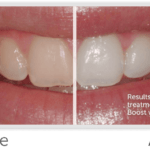While economists and politicians debate whether the U.S. has fallen into a recession, indicators suggest the economy is cooling after two straight quarters of declining GDP. Meanwhile, surging inflation and interest rates also are contributing to a slowdown as consumer spending wanes.
Those economic factors may curb consumer spending on devices and result in a drop in nonemergency care, similar to what transpired in 2020 amid the COVID-19 pandemic, analysts say.
At the same time, the healthcare environment is considered more insulated — especially since 2008 and 2009 — with more people having insurance coverage under the Affordable Care Act (ACA) and stronger safety-net programs like Medicaid expansion.
“I wouldn’t expect things to be as severe, let’s hope this time around. In terms of the procedure volumes, in terms of people losing their jobs, in terms of capital spending — I think it was all worse [during the Great Recession],” Needham Analyst Mike Matson said. “I do think we could see those similar things happen. It just may not be as quite as severe as it was back then.”
Any impact will be dependent on the market and company, RBC’s Singh said. Companies tied to more emergent procedures such as cardiac surgeries may be more resilient in a recessionary environment, whereas businesses with consumer-related products and procedures considered to be deferrable like orthopedics will be more vulnerable.
While the company has seen a slowdown during the pandemic, the declines were mostly linked to hospitals limiting procedures at their facilities to stop the spread of the virus and, more recently, healthcare staffing shortages.
Edwards lowered its 2022 sales forecast in July because of staffing shortages and foreign-exchange pressures.
Companies that are more vulnerable to an economic decline are Stryker and Zimmer Biomet, Singh added, as hip and knee replacement procedures are considered to be more deferrable, albeit necessary at some point. The analyst added that hospital spending also may dry up during a recession, leaving higher-cost products like robotic systems more vulnerable.
In the latest round of earnings calls, tighter hospital budgets were noted by Intuitive Surgical, limiting placements of its soft-tissue robotic system, while Stryker and Zimmer didn’t report a similar slowdown for their orthopedic systems.
Vijay Kumar, an analyst at Evercore ISI, said that while procedures may take a hit if unemployment rates rise, generally there wouldn’t be much of an impact on volumes. A curb in hospital spending might be more risk of a risk for device makers.
Margaret Kaczor, a William Blair analyst, wrote in an emailed statement that even if the orthopedic space faces a short-term slowdown of procedures, “those typically are not bad, and then it just queues up more cases for later.”
A factor for more stable procedure volumes could be the effects of the ACA. According to the Department of Health and Human Services, a record of more than 35 million people had insurance under the ACA in early 2022, and 28.7 million people were uninsured in the fourth quarter of 2021, compared with 48.2 million in 2010.
Facebook
Twitter
Youtube
Facebook
Twitter
Youtube
Facebook
Twitter
Youtube
Facebook
Twitter
Youtube


